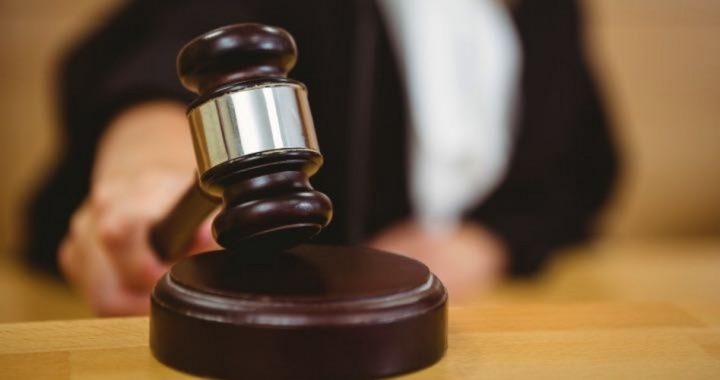
When Donald Trump took office in January 2017, there were more than a hundred judicial court vacancies waiting for him to fill. With Senate confirmation of Daniel Bress to the 9th Circuit Court of Appeals last week, thanks to retirements since then, the president has filled 127 vacancies.
And the impact of his “originalist” appointments is now beginning to be felt.
Although most attention has been paid to the confirmation battles over Supreme Court nominees Neal Gorsuch and Brett Kavanaugh, it’s the appeals courts which do the heavy lifting — or as Caleb Parker of Fox News put it, these are the “big leagues” of the judiciary system. That’s because, of the 7,000 cases sent to the Supreme Court for judicial review every year, it accepts only around one percent of them. This leaves the decisions made at the appeals level in place.
The numbers tell part of the story. So far Trump’s appointees account for some 14 percent of the federal judiciary and more than 22 percent of the judges on the nation’s courts of appeal. If Trump is reelected there is every likelihood that he will be able to nominate close to 40 percent of the country’s federal judges. As The Nation magazine recently lamented, “Trump’s court [nominees] will remain his legacy.”
In March Trump “flipped” the Third Circuit Court of Appeals, which covers New Jersey, Pennsylvania, and Delaware, achieving a majority of judges appointed by Republican presidents instead of Democrats. He has strengthened Republican-president-nominated majorities in the Fifth, Sixth, Seventh, and Eighth Courts of Appeal. With Senate confirmation of Bress last week, he has narrowed the Democrat-president-nominated majority in the Ninth to 16, with 12 Republican-president-nominated ones.
The notoriously liberal Ninth Circuit was the court of choice by those seeking to implement a liberal agenda they couldn’t accomplish otherwise. Rush Limbaugh once called it the “9th Circus,” while former NRATV host Dan Bongino referred to it as the “nutty Ninth.” Trump called it “a complete and utter disaster.”
But those days are over. Thanks to Trump, with help from Senate Majority Leader Mitch McConnell (and Democrats who eliminated the 60-vote threshold for overcoming a filibuster on nearly all judicial nominations), judges such as Bress are balancing courts across the land, favoring “original intent” over “living” interpretations of the Constitution.
Said McConnell of Bress: “[He] comes with strong credentials: the academic pedigree [a BA degree from Harvard College and JD degree from the University of Virginia School of Law], the legal experience [he clerked for Associate Supreme Court Justice Antonin Scalia] and, most importantly, a demonstrated commitment to the rule of law.”
The change in the Ninth Circuit is remarkable, yet predictable. Last week the court ruled in favor of the Trump administration in a case concerning the withholding of federal funds from “sanctuary cities.” A three-judge panel ruled 2-1 that the Justice Department could deny grants to cities and states that have “sanctuary” policies in place and prohibit local law-enforcement cooperation with ICE officials. Trump had issued an executive order immediately following his inauguration cutting off federal funds to sanctuary cities, but its implementation had been stalled until last Friday’s favorable decision by the Ninth Circuit.
More telling was the Ninth’s decision a day earlier supporting the Trump administration’s change in Title X family planning rules that prevent grant recipients from using federal funds to promote abortion. The case came to the Ninth by appeal from 20 states, and Planned Parenthood attempting to block its implementation.
While the ruling could cost Planned Parenthood an estimated $60 million in “referral fees,” it’s a very small percentage of the half-billion it receives in federal funding. But it’s a welcome start to ending the abortion holocaust. What’s notable about the ruling is that all seven of the Ninth Circuit judges who voted in favor of those rules were appointed by Republican presidents, including two chosen by President Trump, while the four in the minority who opposed them were named by Democrat presidents.
Ben Feurer, chairman of the California Appellate Law Group, saw it coming, writing in the Washington Post in February that “Thanks to Trump, the liberal 9th Circuit will be liberal no more.” He applauds Trump’s picks:
They’re all experienced practitioners with stellar credentials. Accordingly, once full staffed, the court’s conservative wing will be newly empowered with sharp young minds capable of steering the law in a more conservative direction over time.
Trump’s judicial legacy will last long after he leaves the White House. Given a second term his legacy will be lengthened and strengthened.
Photo: Wavebreakmedia / iStock / Getty Images Plus
An Ivy League graduate and former investment advisor, Bob is a regular contributor to The New American primarily on economics and politics. He can be reached at [email protected].
Related article:
Senate Invokes “Nuclear Option” to Clear Backlog of Judicial Appointees



